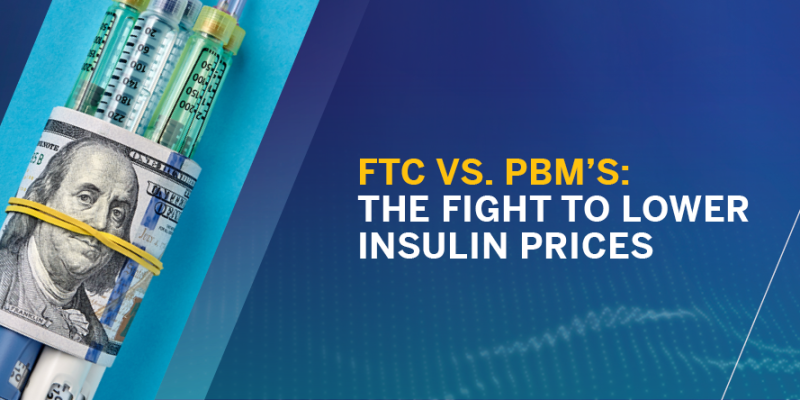
By Lari Harding, Senior Vice President, Healthcare Marketing & Sales Enablement:
The Federal Trade Commission (FTC) has filed a lawsuit against major pharmacy benefit managers (PBMs), accusing Optum Rx, Express Scripts, and Caremark of inflating insulin prices through anticompetitive practices. In the case of insulin, higher prices led to larger rebates and fees for PBMs.
This lawsuit has the potential to drive much-needed PBM reform, ensuring patients receive fair pricing for essential medications. A win for the FTC could set a powerful precedent, encouraging further action to hold PBMs accountable and improve access to affordable insulin and other critical drugs.
The lawsuit aims to address PBMs’ manipulative practices, which have benefited these industry middlemen at the expense of patients forced to alter their therapy in the face of mounting out-of-pocket costs. Human Rights Watch reports that the rising cost of insulin is forcing many diabetic patients to ration their medication or go without, due to limited access. Insulin prices have skyrocketed by 600% over the past two decades, and in 2019, one in four insulin users could not afford their medication, according to the FTC.
The FTC’s decision to challenge PBMs is significant, considering the agency's strong track record. For example, in March of this year, the FTC issued nearly $100 million in refunds from Benefytt Technologies after the company settled a lawsuit filed by the Commission. According to the FTC’s post on the lawsuit, Benefytt lied about their sham health insurance plans and used deceptive websites to sell products and services that cost as much as hundreds of dollars per month but often left customers unprotected in medical emergencies.
Should the FTC prevail in the lawsuit, it could mark a turning point for the industry. Despite growing scrutiny from the media, Congress, and watchdog groups, PBMs have thus far managed to avoid both defeat and meaningful reform. Now that may change.
